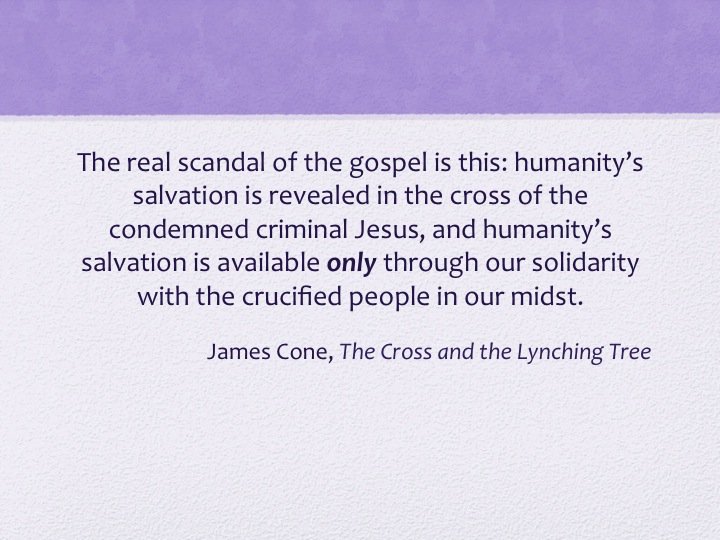Next year, I plan to take the Monday off after the Create in Me retreat. This year, it wasn't possible. The retreat always falls on the Thursday-Sunday after Easter, and this year, the retreat happened during week 1 of classes, a week when administrators at my school usually are expected to be present on the campus for long hours. I got special permission to take leave, and my boss said, "You'll be back on that Monday, right?"
Next year, Easter is later, so the retreat will be later. I'll have a day to process and unpack. Today, I'll head to work soon.
Before I go, let me capture a few last retreat thoughts and travel details:
Yesterday's Travel:
--We left at 5 a.m. yesterday--it was very dark. I hadn't realized how many of the lights around Lutheridge turn off at a certain hour. We felt our way carefully down the stairs and across the parking lot to the car.
--The doors were frozen shut. It didn't take much effort to open them, since we had only had drizzle all night. Still, it was strange to have icy doors in April.
--I made my way carefully down the mountain. I didn't think the roads would have had time to freeze, but I didn't want to discover my error as I was sailing into a guardrail. Sleet hit the window here and there, which made me even more vigilant.
--We stopped at a Starbucks in Spartanburg. They still had some peppermint syrup on hand, so I decided to splurge on a peppermint mocha. They made it right in my Yeti cup, so it stayed warm for hours.
--Of course, it was so delicious that I didn't need hours to drink it. I spent the whole day wishing I had more.
--It was a long day of traveling, but nothing too maddening, until the very slow traffic during the last 60 miles on the Turnpike. We used my friend's cell phone to find a wonderful restaurant that's off the beaten track. If you're ever in Brunswick, Georgia, look up A Moveable Feast. Delicious food--and they, too, were willing to pour coffee directly into our travel mugs.
A few retreat memories for a Monday:
--Lots of people were wearing Fitbits--I may go ahead and get one. I heard a story about a woman's husband who's having a friendly competition with his family. One night, he took the trash out and didn't come back for 45 minutes. The woman said, "Where did you take the trash?" He looked at his family's Fitbit stats and realized he could move to first place if he got a few more steps in.
--I am always amazed at what people can accomplish in very short amounts of time. At some point I'll post some pictures, but I also want to note that most of us spent an hour on worship creation, and we had eloquent prayers and other parts of liturgy, and a WONDERFUL adaptation of "Welcome Table"--complete with 4 part harmony
(you can buy the sheet music by Mark Hayes here). Granted, the people gathered at the retreat were more likely to have musical experience than your average population--still, the sound they accomplished with just one hour to learn the music was amazing.
--It's interesting to have in-depth conversations with people whom I usually only know through their Facebook pages. It's worth repeating that our curated lives only give a small picture of our existence.
--As always, we had interesting conversations about spirituality and the life of the church. It's interesting to many of us that our official church body (the ELCA expression of Lutheranism) allows lay leadership to lead the Word part of the liturgy (think sermon), but not to consecrate the bread and wine for sacrament--but it's much easier to mangle the word than it is to do the sacrament wrong.
--We talked a lot about hospitality: how to be more hospitable, how to show more hospitality through churches. As is often the case, my brain was headed in another direction, a monastic direction. Could we create communities where we could more fully live out our faith every day, not just on Sundays and the occasional Wednesday? Could we create a community that's more like our retreat community?
I realize that most of us view retreats as a mountaintop experience: we can go to the mountain, but we can't stay there. But what if we're wrong?






























